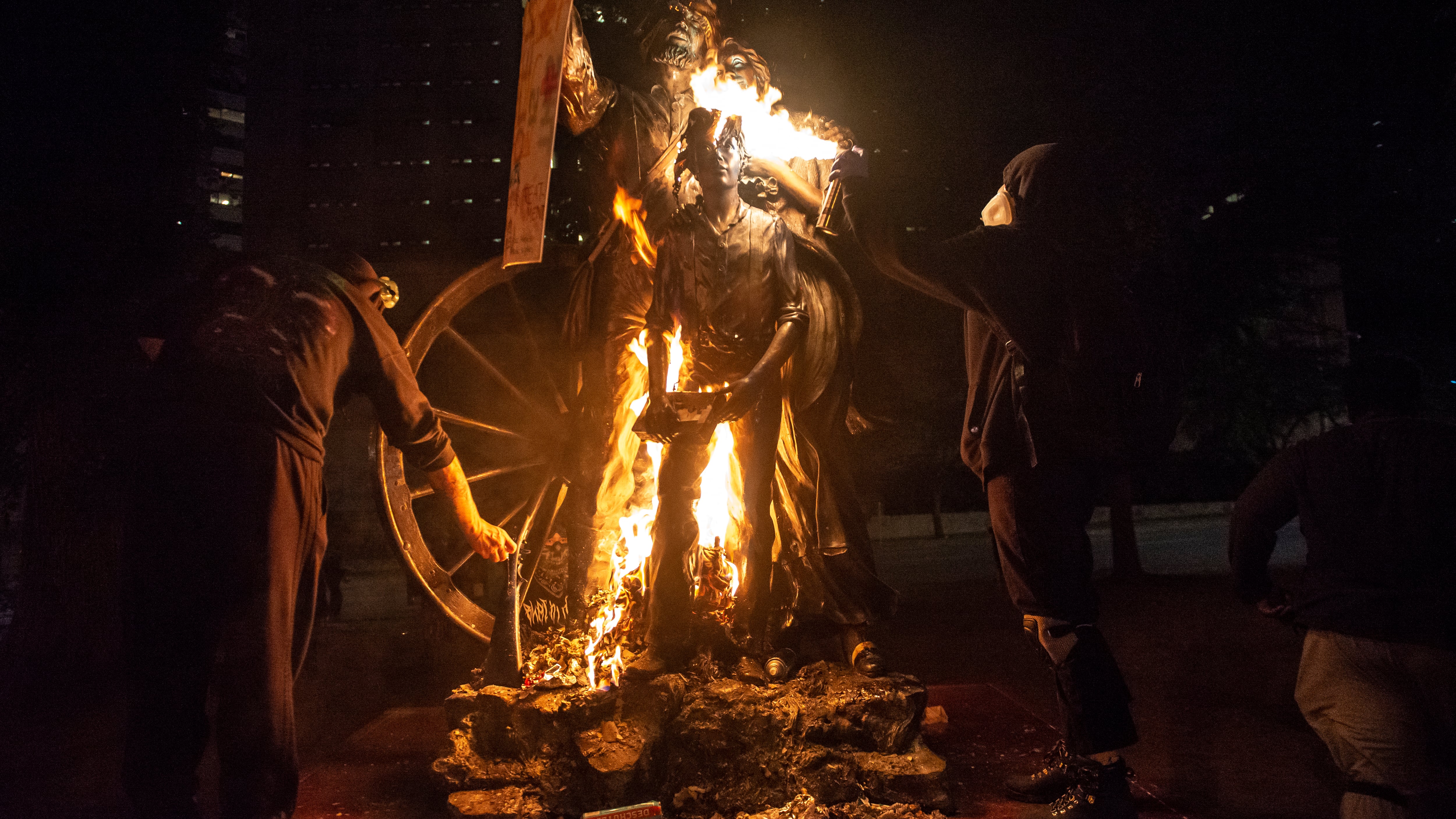Portland City Commissioner Carmen Rubio, who is the city liaison to the Regional Arts & Culture Council, will request $50,000 during the fall budget cycle to fund a public review process that will determine the fate of Portland’s toppled statues—and any future monuments embroiled in controversy.
“The goals of this process will be to make decisions about the monuments currently in question and also to inform a new public policy should this issue arise again,” says Rubio’s chief of staff Jillian Schoene. “This is why Commissioner Rubio will be requesting funds in the fall budget process for initial planning.”
Rubio’s proposed public review means a larger public debate after backlash to a RACC policy that would keep the toppled statues mothballed because they are “significantly at odds with values of antiracism, equity, inclusion.”
This latest development, first reported by Oregon Public Broadcasting, lands about a year after protesters toppled the statues of Presidents Abraham Lincoln and Theodore Roosevelt during an Oct. 11, 2020, rally dubbed “Indigenous Peoples Day of Rage.”
Property damage from the rally, particularly vandalism to the Oregon Historical Society, spurred condemnation from the Confederated Tribes of the Umatilla Indian Reservation, Mayor Ted Wheeler, Multnomah County District Attorney Mike Schmidt and others.
Rubio’s office is reviewing recommendations that RACC sent the commissioner Oct. 15, including one that five statues should not be “automatically restored to their previous locations”—the Lincoln and Roosevelt statues, as well as statues of George Washington and Harvey Scott and the sculpture named The Promised Land.
“We believe that this recommendation is consistent with RACC and the City’s commitment to equity and inclusion and action by the Portland City Council recommending new public art representing more diverse cultural identities and histories for the South Park Blocks,” the arts council wrote to Rubio on Oct. 15. “The George Washington statue cannot be returned to its former site as that site is privately owned and the owners do not wish to have it in that location anymore. City officials have previously determined that Elk will return to downtown Portland. This recommendation sets into motion the need for a community engagement process to determine next steps for these statues.”
The decision by Rubio to seek more public process follows pushback by civic power brokers, who objected to a private nonprofit deciding the fate of city monuments without further public debate.
Rubio’s office says it has requested an initial $50,000 to fund the community engagement process, although the dollar amount is not set in stone.

